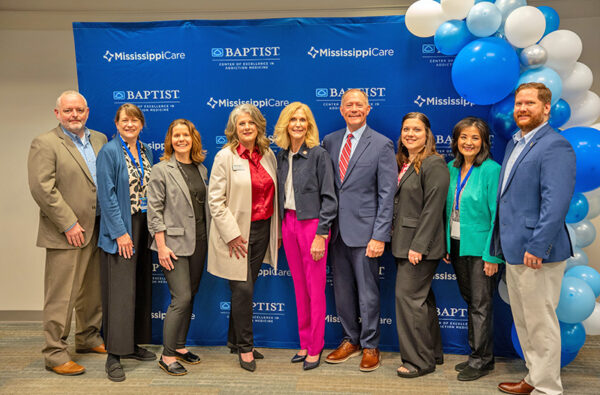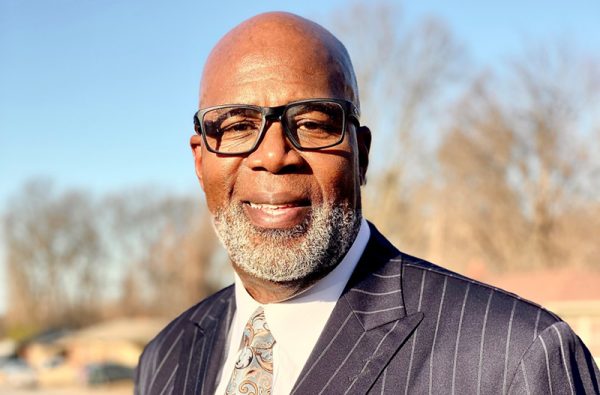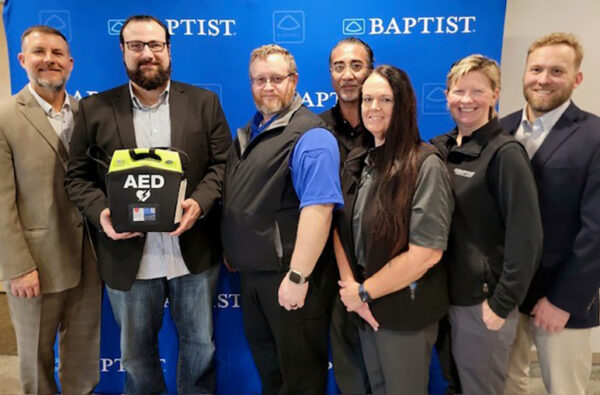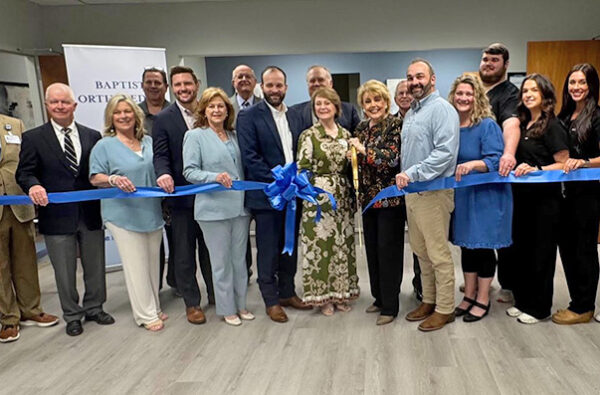The Baptist Advanced Heart Failure Program at Baptist Memphis recently became the first in the region to use a new medication called Onpattro to treat amyloidosis, when the body produces an abnormal protein called amyloid that can affect all tissues and organs, including the heart.
Often, the first signs of amyloidosis are orthopedic conditions such as spinal stenosis or carpal tunnel syndrome. Eventually the patient can end up in a cardiologist’s office with a heart in extreme distress.
“By the time we’re diagnosing patients with amyloidosis in our offices, they also have advanced heart disease,” said Dr. Dmitry Yaranov, a cardiologist and program director for advanced heart failure, heart transplant and mechanical circulatory support for the Advanced Heart Failure Program.
Onpattro works by stopping the spread of amyloid by halting its production in the liver. That allows Dr. Yaranov and his team to stabilize the heart and other disease-affected organs. The first patient treated with Onpattro is doing well, and several more patients have since started to receive the infusion treatment.
Baptist is the only hospital in the Mid-South to offer this medication; the closest alternative is in Nashville.
“If patients present with heart disease, we can treat them for that chief complaint once the amyloid production is under control,” said Dr. Yaranov. “We can even list the patient for a heart transplant if that is what is needed.”
Nationally, almost four percent of African Americans are carriers for the genetic mutation that causes amyloidosis. Because the Memphis area’s African American population is six and a half times greater than the national average, the presence of amyloidosis could be more than six times greater in Memphis.
Because the disease is mostly hereditary, genetic testing could help detect it early.
“When we diagnose a patient, we offer to run testing on their family members to help diagnose the amyloidosis earlier,” explained Dr. Yaranov.
Most importantly, Dr. Yaranov wants those with amyloidosis to know they can receive leading-edge treatment close to home.






